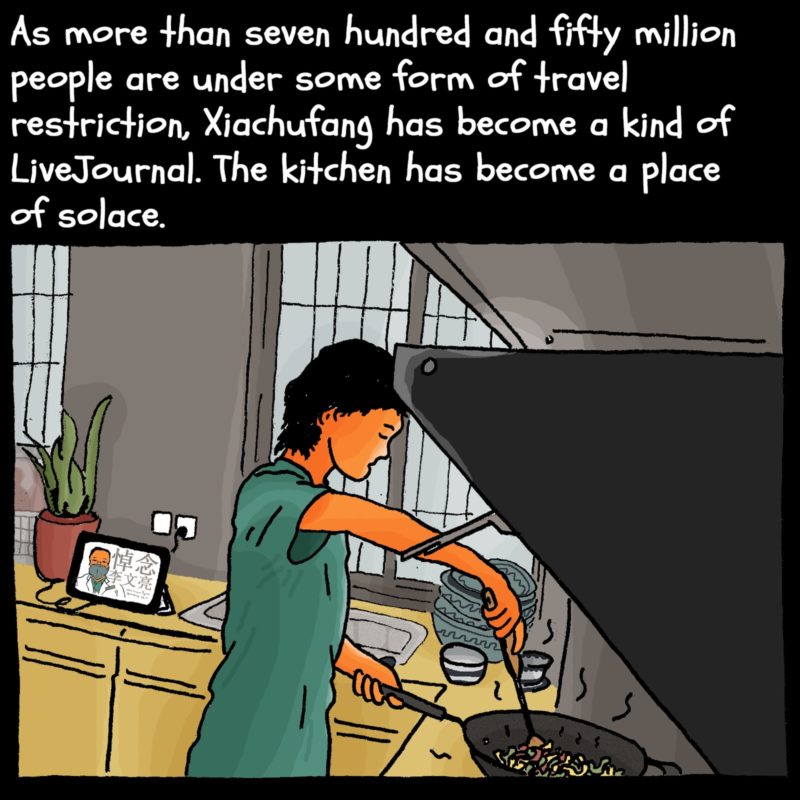Finding Solace & Entertainment Under Quarantine: China’s Netizens Pave the Way
There’s been a raft of great coverage recently about how people in China are adapting to life under quarantine, especially the ways that they’re leveraging technology to entertain themselves at this stressful situation. Below is a recap of some of what we’ve seen (with a hearty shout-out to those who first reported on it).
Livestreamed “bedroom” concerts

As Krish Raghav writes for Hyperallergic:
Enter live-streaming. Bored, anxious, isolated. and stuck at home under what feels like a nationwide quarantine, China’s musicians and musicheads are making the best of an unexpected situation by organizing “bedroom music festivals” and live-streamed club nights.
“As someone who likes to stay at home and do nothing,” writes one online meme, “It’s finally my time to shine.” These events allow China’s so-called “anti-social generation” to redefine sociality their way.
Virtual art exhibition visits

As Tomás Pinheiro writes for RADII:
[M WOODS Beijing] took the lead in early February by inaugurating an online exhibition born from the concern of how audiences can experience art during times of closure.
Art Is Still Here: A Hypothetical Show for a Closed Museum is a series of videos gradually released on the museum’s social media accounts. They take viewers through a guided tour of a virtual gallery showing multimedia works. “During the quarantine period, social media is a potent tool not just for sharing information of all kinds, but also to connect communities,” explains Wang.
Sharing Rituals of Cooking

Experiments in Online Blockbuster Debuts

As RADII writes:
…the makers of one such blockbuster, Lost in Russia, struck a deal with ByteDance to release their film on a range of apps for free, including Douyin (China’s TikTok). The move provoked a wave of commentary — and not just because most critics agreed the movie was poor. Some in the industry claimed the deal was “‘trampling’ and ‘destroying’ China’s cinema industry,” as one Reuters report had it, while others questioned whether it was actually a hard-nosed business decision rather than the charitable gesture it was pitched as.
For more coverage of how Chinese netizens are adapting to life under quarantine, we highly recommend RADII’s roundup: 6 Ways China Has Turned to Tech to Tackle the Coronavirus.